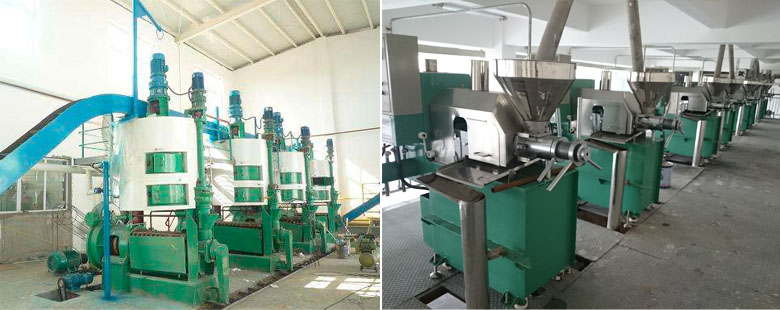What is the difference between extracted oil and pressed oil?
Edible oil is a crucial component in our daily diet, used in various culinary applications. The production of edible oil involves different methods, with solvent extraction and pressing being the most commonly used techniques. Historically, solvent extraction has dominated the market, accounting for over 80% of edible oil production. However, in recent years, pressed oil has gained significant recognition for its perceived health and safety benefits, making its way into the edible oil market.

1. Production methods
Solvent extraction method for extracted oil:
Solvent extraction is a widely employed technique for extracting oil from various oilseeds. It involves using a solvent, typically hexane, to dissolve the oil from the seed or the cake. The solvent is then removed through evaporation, leaving behind the extracted oil. This method is favored by the industry due to its high yield efficiency and cost-effectiveness.
Pressing method for pressed oil:
Pressing, also known as mechanical extraction, involves applying mechanical pressure to oilseeds to extract oil. The oilseeds are first crushed or ground into a paste, which is then subjected to pressure using hydraulic oil press or screw oil press. Pressing is considered a more natural and traditional approach to oil extraction.
Yield efficiency and cost comparison:
Solvent extraction typically offers a higher yield of oil compared to pressing, making it economically advantageous. However, pressing has gained popularity due to its association with healthier and more natural oil products.
2. Advantages and disadvantages
Extracted oil’s high yield efficiency and low price:
The solvent extraction method allows for the efficient extraction of oil from oilseeds, resulting in higher yields. Additionally, this method is cost-effective, making the extracted oil more affordable for consumers. The high yield efficiency and lower production costs have contributed to the dominance of extracted oil in the edible oil market.
Pressed oil’s retention of nutrients and safety:
One of the main advantages of pressed oil is its ability to retain more nutrients during the extraction process. Since pressing does not involve the use of chemical solvents, the oil maintains its natural flavors, colors, and nutritional profile. Pressed oil is often marketed as a healthier option due to its minimal processing and perceived safety.
3. Refining process
To produce edible oil products, both extracted oil and pressed oil often undergo refining processes. These processes aim to improve the oil’s quality, stability, and taste. Common refining steps include alkali refining, bleaching, and deodorization. Alkali refining involves treating the oil with an alkaline solution to remove impurities, while bleaching removes pigments and unwanted substances. Deodorization helps eliminate any odors or flavors in the oil, resulting in a neutral taste.
4. Nutrition and health
Nutrition and health benefits of pressed oil:
Pressed oils are often considered healthier due to their minimal processing. The pressing method retains more of the natural nutrients present in the oilseeds, including vitamins, minerals, antioxidants, and essential fatty acids. Cold-pressed oils, in particular, are valued for their potential health benefits as they are extracted at lower temperatures, which helps preserve heat-sensitive nutrients. These oils are often preferred by health-conscious individuals seeking oils with higher nutritional value and potential antioxidant properties.
Nutrition and health benefits of extracted oil:
While the refining process of extracted oil may remove some nutrients, it still provides a significant source of essential fatty acids, such as omega-6 and omega-3 fatty acids. Extracted oils also tend to have a milder flavor and higher smoke points, making them suitable for cooking at higher temperatures. Additionally, the cost-effectiveness of extracted oils makes them more accessible to a wider population.
It’s worth noting that the nutritional profile and health benefits can vary depending on the specific type of oil and the quality of the extraction or pressing process. Consumers should consider factors such as the oil’s source, production methods, and certifications when making informed choices about the oils they consume.

